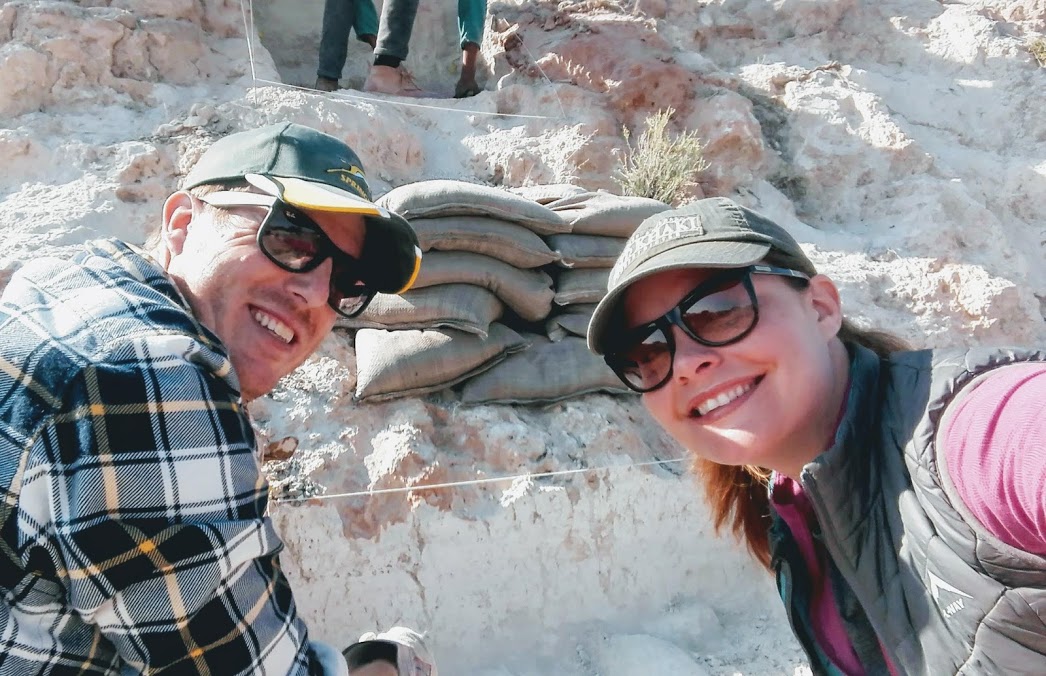The North of Kuruman Palaeoarchaeology Project: investigating early Homo sapiens behaviour in the southern Kalahari, South Africa.
Presenters
Dr. Ben Schoville and Dr. Jayne Wilkins
Abstract
Dr. Wilkins and Dr. Schoville lead The North of Kuruman Project, a multidisciplinary regional study of Pleistocene hunter-gatherer adaptation in the Kalahari Basin designed to address the question: how did climate change impact early humans in the interior of southern Africa, and how did early humans adapt to their environment? The project has targeted the area north of the town of Kuruman in the semi-arid Northern Cape of South Africa. While historically seen as ‘abandoned’ during most of the Pleistocene, our project is challenging this narrative by providing key evidence for the important role the Kalahari Basin played in human evolution. We are using archaeological, paleontological, and geochronological evidence to piece together hominin occupation over the last 1-million years. Excavations have been focused at two sites, Ga-Mohana Hill North Rockshelter and Witberg 1, where evidence for innovative behaviours, recurrent occupations, and variable stone tool production strategies are evident. In this presentation, we bring together evidence of Pleistocene human-environmental interactions in the southern Kalahari and share new results from the North of Kuruman project.
interior of southern Africa, and how did early humans adapt to their environment? The project has targeted the area north of the town of Kuruman in the semi-arid Northern Cape of South Africa. While historically seen as ‘abandoned’ during most of the Pleistocene, our project is challenging this narrative by providing key evidence for the important role the Kalahari Basin played in human evolution. We are using archaeological, paleontological, and geochronological evidence to piece together hominin occupation over the last 1-million years. Excavations have been focused at two sites, Ga-Mohana Hill North Rockshelter and Witberg 1, where evidence for innovative behaviours, recurrent occupations, and variable stone tool production strategies are evident. In this presentation, we bring together evidence of Pleistocene human-environmental interactions in the southern Kalahari and share new results from the North of Kuruman project.
About the Presenters
Dr Ben Schoville is a Research Fellow at the University of Southern Queensland, an Honorary Senior Fellow in the School of Social Science at UQ, and co-director of the North of Kuruman Palaeoarchaeology Project. His field research focuses on the technology and behaviours of early modern humans from Pleistocene archaeological sites in South Africa. He recently received an ARC Discovery Project grant titled, “The Impact of Water Stress on Early Humans in the Kalahari Desert”.
Dr Jayne Wilkins is a Senior Lecturer at Griffith University, editor of the Journal of Human Evolution, research associate at the Human Evolution Research Institute at the University of Cape Town, and co-director of the North of Kuruman Palaeoarchaeology Project. She recently co-edited the two-volume book, “Handbook of Pleistocene Archaeology of Africa : Hominin behavior, geography, and chronology”.
About Archaeology Working Papers
The Working Papers in Archaeology seminar series provides a forum for dissemination of archaeological research and ideas amongst UQ archaeology students and staff. All students are invited to attend the series and postgraduate students, from honours upwards, are invited to present their research. The aim is to provide opportunities for students, staff and those from outside UQ, to present and discuss their work in an informal environment. It is hoped that anyone interested in current archaeological directions, both within and outside the School and University, will be able to attend and contribute to the series.
